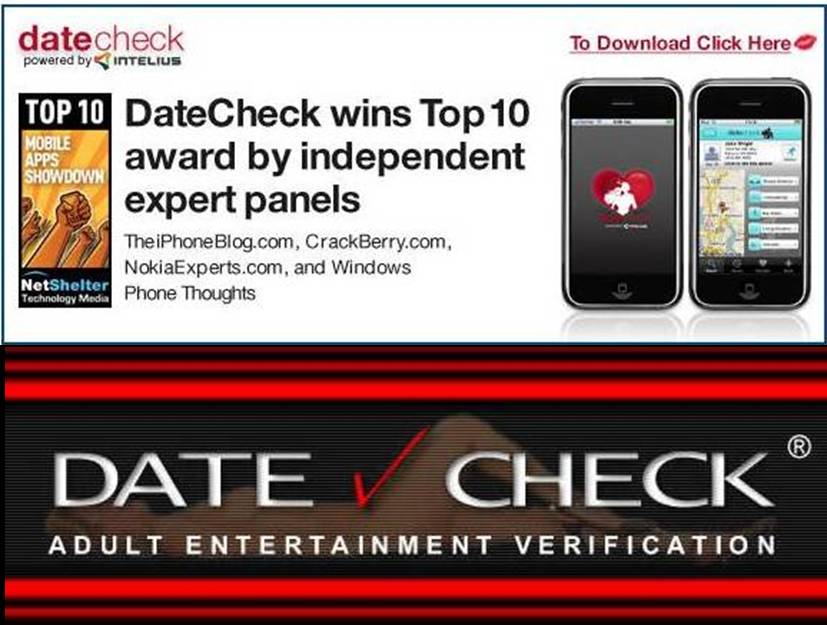Entries in Trademark Infringement (368)
Western District Corrects Discovery Abuses with Adverse Instruction to Jury
 Loops LLC’s flexible prison toothbrush featuring “non-shank” design
Loops LLC’s flexible prison toothbrush featuring “non-shank” design
In 2008, Ferndale’s Loops LLC filed suit in the Western District against Seattle’s Phoenix Trading, Inc., d/b/a Amercare Products, Inc., for trademark and trade dress infringement, among other things.
Both parties sell toothbrushes to prisons. Loops alleges that Amercare has sold toothbrushes under the LOOPS FLEXBRUSH trademark, which is identical to Loops’ registered trademark. It also alleges that Amercare’s toothbrushes are identical to Loops’ registered product design. (Loops’ “non-shank” toothbrush design can bend in half or twist into a spiral without breaking, so it can’t be used as a weapon. Seems a bit functional to me, but I digress.)
Loops moved for an order of contempt, alleging that Amercare has withheld or deleted relevant documents that Loops had requested in discovery. In particular, Loops requested documents related to the manufacture of Amercare’s toothbrushes in China and their importation into the States. Early in the litigation, Judge Ricardo Martinez granted a motion to compel, but Amercare’s documents were not forthcoming. In depositions, it became clear that Amercare had not produced all of the requested documents.
Today, the court found: “Defendants had four or five invoices from Kai Yuen / Jiangsu Light within their possession or control during the pendency of this litigation. They only produced two of them. Defendants were also in control of purchase orders for flexible handle toothbrushes sent from Amercare to H&L Industrial, and invoices from H&L to Amercare, which were not produced. Additionally, Defendants were in control of invoices detailing freight charges for transportation of flexible toothbrushes from factories in China to Chinese ports as well as wire transfers from Amercare to H&L Industrial, and these have not been produced.”
The court added: “Defendants are culpable in either withholding these documents or negligently destroying or losing them after having a duty to preserve them. The Court further finds that these materials were relevant to prove the extent of Defendants’ damages. Finally, the Court finds that some number of e-mails between Amercare and H&L existed during the pendency of this lawsuit which were not produced and have since been negligently deleted. These e-mails were likely relevant to damages and liability. Defendants’ contention that no documents have been destroyed and no more responsible documents exist is directly contradicted by Ms. Hemming’s deposition testimony, which indicates that relevant documents do or did exist.”
To correct these discovery abuses, the court concluded it would give the jury an adverse inference instruction that the evidence Amercare made unavailable was unfavorable to Amercare.
That could really hurt Amercare at trial — as well it should. A party’s not playing fair in discovery threatens to undermine our system for deciding who’s right and who’s wrong based on the merits. No one should be disadvantaged by playing by the rules.
The case cite is Loops LLC v. Phoenix Trading, Inc., No. 08-1064 (W.D. Wash. March 3, 2010).
No Preliminary Injunction in "Planet Coffee" Trademark Infringement Case
 Plaintiff Planet Coffee Roasters’ (left) and defendant Planet Coffee’s marks
Plaintiff Planet Coffee Roasters’ (left) and defendant Planet Coffee’s marks
Yes, it’s a trademark dispute involving coffee.
But no, it’s not being fought out in Seattle. This one’s in southern California.
Last year, Planet Coffee Roasters, Inc., sued Hung Dam, d/b/a Planet Coffee, for trademark infringement.
Planet Coffee Roasters sells coffee beans to wholesale customers under the mark PLANET COFFEE ROASTERS. Mr. Dam’s store sells beans and coffee by the cup to retail customers under the mark PLANET COFFEE.
As the Los Angeles IP Trademark Law Blog predicted, Planet Coffee Roasters has had a hard time of it.
On Feb. 18, the Central District of California denied Planet Coffee Roasters’ motion for preliminary injunction against Mr. Dam, finding the plaintiff was not likely to succeed on the merits.
Favoring Planet Coffee Roasters, the court found the marks and goods/services are similar, and consumers are not likely to exercise much care in purchasing the parties’ relatively inexpensive products.
Favoring Mr. Dam, however, the court found PLANET COFFEE ROASTERS is fairly weak and the parties use different marketing channels.
The court also wasn’t impressed with Planet Coffee Roasters’ evidence of irreparable harm.
“Plaintiff has failed to show that it has suffered any injury at all, let alone injury that is ‘great,’” the court wrote. “Plaintiff simply asserts that allowing Defendant to ‘use[ ] a confusingly identical name and sell[ ] inferior coffee products will damage, if not destroy entirely, Planet Coffee’s reputation and goodwill.’ However, it offers no evidentiary support at all for this claim. Even assuming that Plaintiff’s business has suffered some monetary loss, Plaintiff has made no showing that money damages will be inadequate to compensate for its losses.”
Nor was the court impressed with Planet Coffee Roasters’ proof that the balance of hardships tips sharply in its favor: “[A]side from unsubstantiated claims made in declarations submitted by two of its employees, Plaintiff has offered no factual evidence in support of its claim that it has been harmed by Defendant’s use of the mark ‘Planet Coffee.’”
The case cite is Planet Coffee Roasters, Inc. v. Hung Dam, 2010 WL 625343, No. 09-00571 (C.D.Cal. Feb. 18, 2010).
Adult Entertainment Company Sues Intelius over "Date Check" Trademark
 Intelius’ (top) and DCAEV’s DATECHECK trademarks
Intelius’ (top) and DCAEV’s DATECHECK trademarks
Nevada’s DCAEV, Inc., has sued Bellevue’s Intelius, Inc., in the District of Nevada for trademark infringement.
DCAEV owns www.Date-Check.com, a Web site that serves as a “venue and directory for its users to locate and screen various adult-oriented companion and escort services.”
Intelius sells online background checks.
According to DCAEV’s Feb. 19 complaint, both parties use DATE CHECK in connection with their respective services.
DCAEV has a registered trademark for DATE CHECK for “Promoting the goods and services of others by providing hypertext links to the web sites of others; Providing a web site featuring product ratings of the consumer services of others in the field of escorts.”
DCAEV claims it began using its trademark in 2002. It says Intelius began using its mark in 2009, when the company released a DATE CHECK application for the iPhone.
Intelius has not yet answered DCAEV’s complaint.
TechFlash story here.
"Worm Factory" Bench Trial Results in Permanent Injunction
The header says it all.
The Cascade Manufacturing Sales, Inc. v. Providnet Co. Trust trademark dispute between competing sellers of worm composting products has been tried to conclusion.
As folks may recall, this case involved Cascade’s complaint that Providnet’s use of GUSANITO WORM FACTORY infringed Cascade’s WORM FACTORY trademark.
Western District Judge Ronald Leighton previously found that WORM FACTORY was not generic; that Cascade was likely to prevail on the merits and ordered a preliminary injunction; and that defendants were in contempt of that order (STL posts here and here.)
On Feb. 18, following a bench trial, Judge Leighton made the preliminary injunction permanent. He did not award damages. He has asked Cascade to submit a motion for attorney’s fees.
The preliminary — now permanent — injunction enjoins Providnet from using phrases that are confusingly similar to WORM FACTORY, including FACTORY OF WORMS but not WORM WRANGLER.
The case cite is Cascade Manufacturing Sales, Inc. v. Providnet Co. Trust, No. 08-5433 (W.D. Wash. Feb. 18, 2010).
Senate Bill Proposes Study on Trademark Bullies
Sen. Patrick Leahy (D-Vermont) has introduced a bill that’s aimed at trademark bullies.
Or at least studying trademark bullies.
The bill, the “Trademark Technical and Conforming Amendment Act of 2010” (S-2968), arises out of Hansen Beverage Co.’s claim last year that Vermont-based Rock Art Brewery’s use of VERMONSTER in connection with beer infringed Hansen’s MONSTER trademark in connection with energy drinks. (Story on the parties’ Oct. 2009 settlement here.)
While the bill appears mostly to contain technical amendments, Section 4 directs the Secretary of Commerce to study and report to the Senate judiciary committees about “the extent to which small businesses may be harmed by litigation tactics by corporations attempting to enforce trademark rights beyond a reasonable interpretation of the scope of the rights granted to the trademark owner.”
In Sen. Leahy’s words, “This legislation … requires a study of how the current system can better protect small businesses from abuses of the trademark system by larger corporations. Congress provides strong enforcement tools to intellectual property owners, as we should, to deter infringing activity and to remove counterfeit products from the market. I have become concerned, however, that large corporations are at times abusing the substantial rights Congress has granted them in their intellectual property to the detriment of small businesses. In fact, we saw a high-profile case like this in Vermont last year involving a spurious claim against Rock Art Brewery in Morrisville. When a corporation exaggerates the scope of its rights far beyond a reasonable interpretation in an attempt to bully a small business out of the market, that is wrong. This legislation therefore directs the Secretary of Commerce, in coordination with the Intellectual Property Enforcement Coordinator, to consider options for protecting small businesses from such harassing litigation, while ensuring that legitimate trademark infringement actions are handled efficiently and expeditiously by the courts.”
The World Trademark Review Daily wrote (free trial subscription required) about this issue on Feb. 16.
I got a couple quotes in the story, including: “Trademark bullies definitely exist. We’re seeing more and more trademark [lawsuit] filings but fewer and fewer trademark trials, which arguably suggests that trademark owners are using demand letters and trademark [lawsuit] filings to exercise their might and to extract something that they may not legally be entitled to by the court process.”
I also encouraged trademark owners to be judicious about who they make demands of. “All brand owners should think like small brand owners with limited resources. Brand owners should fight only legitimate battles that have realistic goals.”
Query whether anything will come of Sen. Leahy’s bill. It’s probably just a show of support for his constituent.
But maybe it will spark discussion about whether the Lanham Act should provide for the award of attorney’s fees to the party that prevails in a trademark infringement action. That’s what the study should focus on.